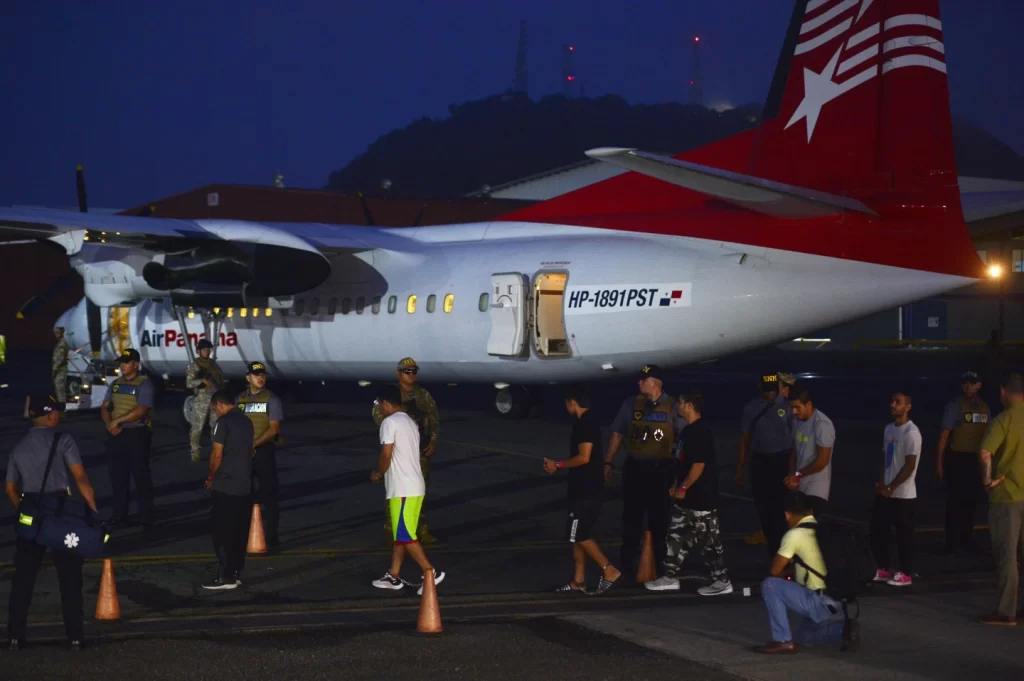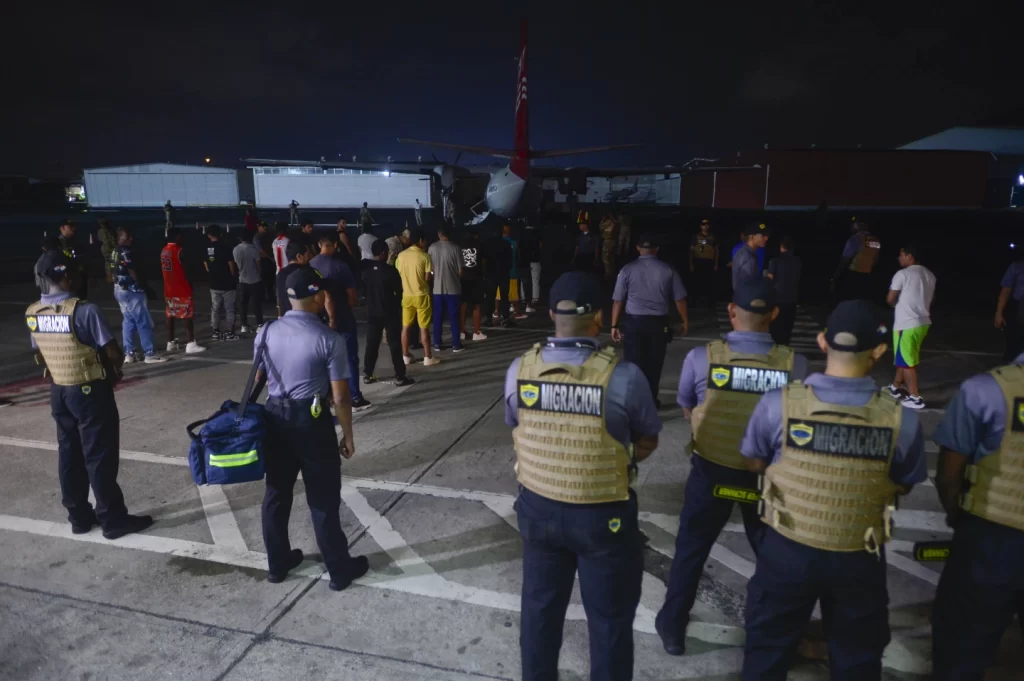PANAMA CITY — The Panamanian government deported 29 Colombian nationals on Tuesday in what officials describe as the first flight funded by the United States under an agreement signed in July. This move marks a significant shift in Panama’s approach to managing the increasing flow of migrants through the treacherous Darien Gap.
The deportees had entered Panama illegally through the Darien jungle, a perilous route that saw over 500,000 migrants pass through in 2023, predominantly Venezuelans.
The deportation flight, while focused on Colombian nationals, underscores the complex web of migration patterns and diplomatic relationships in the region.

Panama’s newly inaugurated President José Raúl Mulino, who took office on July 1, has pledged to stem the tide of migration through the country, a goal that aligns with U.S. interests in the region. Initially, Mulino had described these flights as “voluntary” repatriations. However, officials clarified that the individuals deported on Tuesday had criminal records, suggesting a more targeted approach to deportations.
Roger Mojico, director of Panama’s National Immigration Service, told reporters that the government is in discussions with other countries, including Ecuador and India, about coordinating similar repatriation flights. This initiative indicates Panama’s intention to broaden its deportation efforts beyond South American nationals.
The focus on Colombian deportees highlights a notable limitation in Panama’s current migration strategy. Despite the large number of Venezuelan migrants passing through the country, Panama is currently unable to deport Venezuelan nationals due to strained diplomatic relations between the two countries.
This tension stems from Panama’s refusal, along with most other countries in the region, to recognize the results of Venezuela’s recent election that granted President Nicolas Maduro another term in office. As a result, diplomatic relations between Panama and Venezuela have been suspended.
The Darien Gap, a stretch of jungle connecting Colombia and Panama, has become a crucial, if dangerous, transit point for migrants heading north towards the United States. The region’s challenging terrain and lack of infrastructure make it a perilous journey for migrants, many of whom are fleeing economic hardship or political instability in their home countries.

The US-funded deportation flight represents a new phase in regional cooperation on migration issues. It reflects growing concerns among Central American countries and the United States about the increasing number of migrants moving through the region. The agreement between Panama and the U.S. to fund these flights suggests a more active role for the U.S. in shaping migration policies in Central America.
Human rights organizations and migration advocates are likely to scrutinize this new approach closely. Concerns may arise about the treatment of deportees, the criteria used for selecting individuals for deportation, and the broader implications for asylum seekers and refugees in the region.
As Panama continues to implement this new strategy, several questions remain about how the inability to deport Venezuelan nationals will affect Panama’s overall migration management plans, what criteria will be used to determine which migrants are subject to deportation, and how this policy will impact Panama’s relationships with neighboring countries and the broader international community.
The deportation flight marks a significant moment in Panama’s evolving approach to migration management. As the country balances domestic concerns, international agreements, and humanitarian obligations, the effectiveness and impact of this new strategy will be closely watched by governments, NGOs, and migrants throughout the Americas.



